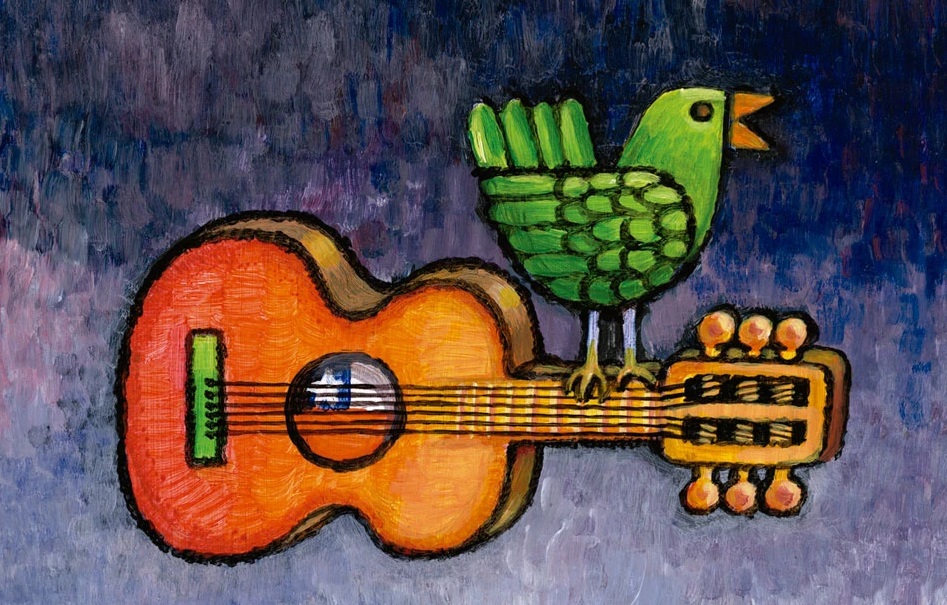
La Nueva Canción
emerging popular musical movement in South America known as nueva canción (New Song Movement) popularized during the 1960s in Chile.
Why?
The rise of totalitarian military governments in South America during the 1960s and 1970s brought increased political oppression and deteriorating social conditions. New singers and songwriters took up nueva canción as a means to express collective struggle in a time of violent repression.
Where?
gained popularity in Argentina, Chile, and Uruguay, the appeal of the music as a popular means of protest and spur for positive social change grew in other regions of Latin as well. The poetic artistry of the lyrics and the music’s foundation in rural Native cultures prompted many to see the New Song Movement as a genuine form of “people’s music”.
Examples
El pueblo unido jamás será vencido- Chile
Song created in 1973 by musical group, Quilapayún, during Chile’s coup d’état of Salvador Allende led by General Augusto Pinochet.
The song came to symbolize resistance and became a world emblem of struggle and resistance.
Became popular around the work in countries like Germany and France (where many Chileans exiled to)
Lyrics
“El pueblo unido jamás será vencido,el pueblo unido jamás será vencido…
De pie, cantar
que vamos a triunfar.
Avanzan ya
banderas de unidad.
Y tú vendrás
marchando junto a mí
y así verás
tu canto y tu bandera florecer,
la luz
de un rojo amanecer
anuncia ya
la vida que vendrá”
English Translation
“The people united will never be defeated,
The people united will never be defeated…
Arise, sing
We are going to win.
Flags of unity
are now advancing.
And you will come
marching together with me,
and so you’ll see
your song and your flag blossom.
The light
of a red dawn
already announces
the life to come.”
Un Violador en tu Camino
“ A Rapist in Your Path” was created by Chilean feminist group Las Tesis in 2019 as a response to violence against women.
For protesters the lyrics and choreography directly reflect their experiences. The pillars of institutional power – the police, the judges or political leaders – either turn a blind eye to sexual violence or become its perpetrators. During the performance, the blindfolded activists squat three times. According to Las Tesis, this alludes to the humiliating body position women are forced to assume when arrested in Chile, often stripped naked. Elsewhere, performers have pointed in the direction of the institution named each time, such as the police or the court.
Lyrics
“Patriarchy is a judge who judges us for being born
and our punishment is the violence you don’t see.
It’s femicide, impunity for my murderer,
it’s disappearance, it’s rape.
And it wasn’t my fault, where I was, or how I dressed.
The rapist is you, the rapist is you.
It’s the police, the judges, the state, the president.
The oppressive state is a macho rapist.”


One response to “PROTEST SONGS IN LATIN AMERICA”
یکی شدن و احساس با هم بودن گمشدهای بود که آن روزها پیدایش کرده بودیم. رنگ سبز نمادی شده بود از این یگانگی هرگوشه ای از خیابان علامتی به این رنگ یادم میانداخت ما یکی هستیم. همین کافی بود که لبخند روی لبم بیاید. آهنگ سر اومد زمستون یا یار دبستانی من هم همین بود. به محض شنیدن این ملودیهای آشنا لبخند و حس آشنای عضوی از یک جمع بودن از درونم میجوشید.
LikeLike